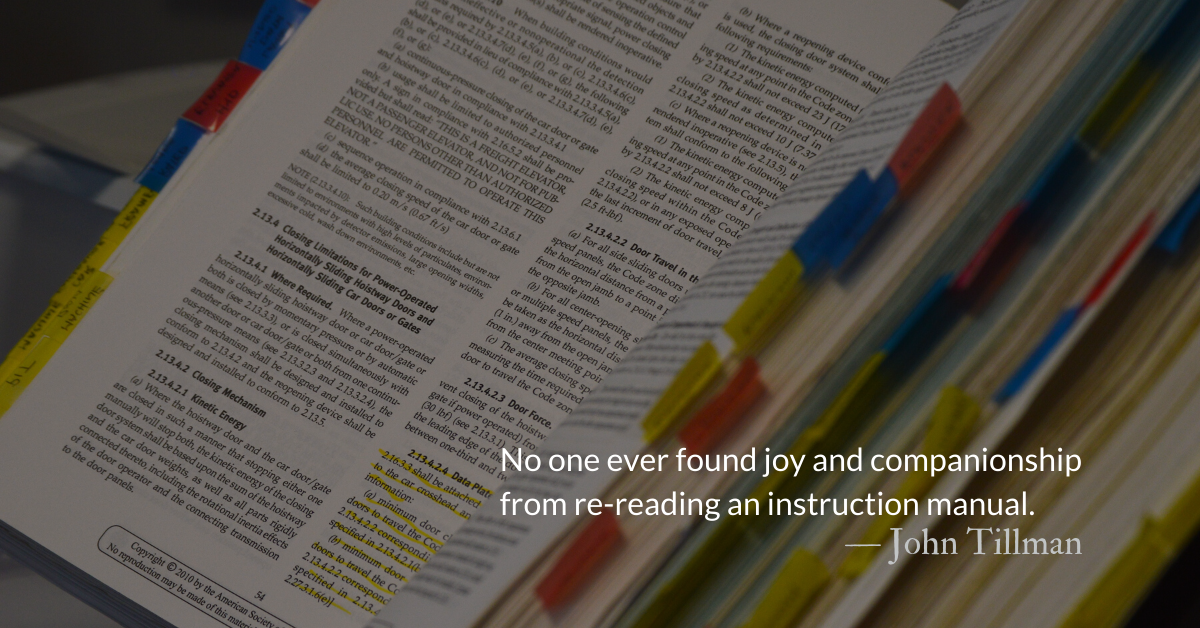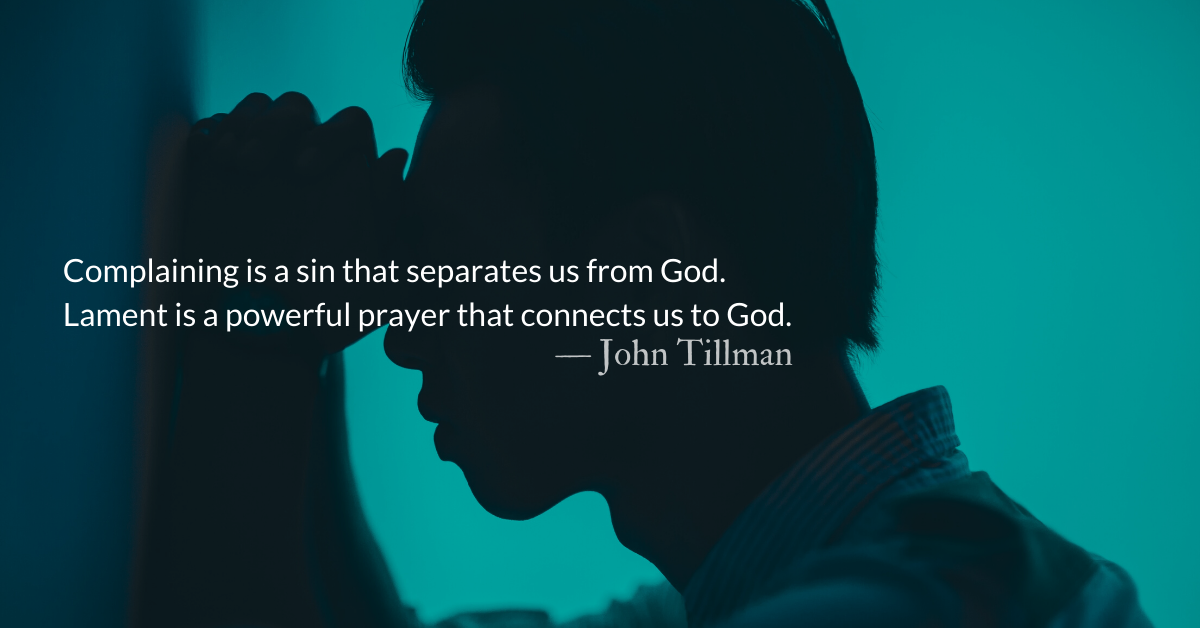Scripture Focus: Romans 15.14
I myself am convinced, my brothers and sisters, that you yourselves are full of goodness, filled with knowledge and competent to instruct one another.
Reflection: Content Mastery vs the Master of the Content
By John Tillman
Jeannette Clift George, in her book, Troubling Deaf Heaven, relates her early struggles with God’s word.
“Someone told me to read the Bible until I understood something from the reading. After an hour of intense reading I threw my copy of the Bible across the room and cried aloud to God, “Yes, I have learned something! I have learned that I don’t understand your Book! Now can I stop reading it?” And then, still muttering over the details of my problem, I went over and picked up my Bible, with it’s tossed pages all askew, and read again. My early Bibles show the wear and tear of my struggle.”
Kierkegaard asserts that the Bible is easy to understand and we merely feign misunderstanding to shirk its demands on us. However, many, especially in the early steps of discipleship and study, do struggle with it.
Too often, immature disciples approach the Bible as consumers, treating it as a store full of solutions to our problems. When we do this, we are easily overwhelmed by its shelves, confused by its organization, and frustrated by seemingly inexplicable products. The Word of God is not a store, a catalog, a manual, or a textbook, and our approach to scripture must go beyond scholarship. No accumulation of facts will feed our faith.
Our hope of gaining meaning from God’s Word is listening for his voice, personally calling to us. We must trust that the Holy Spirit Jesus promised will break the silence. George continues:
“Then, one day, one reading, all of a sudden I saw me in the Scripture. My need—my question for the day, my tears for the evening, my fears for the morning, me—in God’s Holy Word. That made all the difference in the world.
That’s why I keep praying even when God’s silence infers the communication is out of order. I found me in his Word because he put me there. God put me in his Word that I might hear him in the silence, that I might hear him in the midst of arguments with him, that I might know that he knows me and loves me because he said so.”
In our rhythms of prayer and reading, we do not pursue mastery of content as much as we pursue a relationship with the Master of the content—a relationship with the Holy Spirit that goes beyond bringing the text to life and joins us in walking through our life.
Divine Hours Prayer: The Request for Presence
Test me, O Lord, and try me; examine my heart and mind. — Psalm 26.2
– Divine Hours prayers from The Divine Hours: Prayers for Springtime by Phyllis Tickle.
Today’s Readings
Job 11 (Listen -2:01)
Romans 15 (Listen -4:32)
Read more about How Not to Read Scripture
No one ever found joy and companionship from re-reading an instruction manual. The Bible is more akin to a pointillistic painting…You have to step back to see the likeness the artist has created.
https://theparkforum.org/843-acres/how-not-to-read-scripture/
Read more about The Scripture Cannot Be Set Aside
Considering all of Scripture together without breaking it apart requires patience and a deep familiarity with Scripture.











